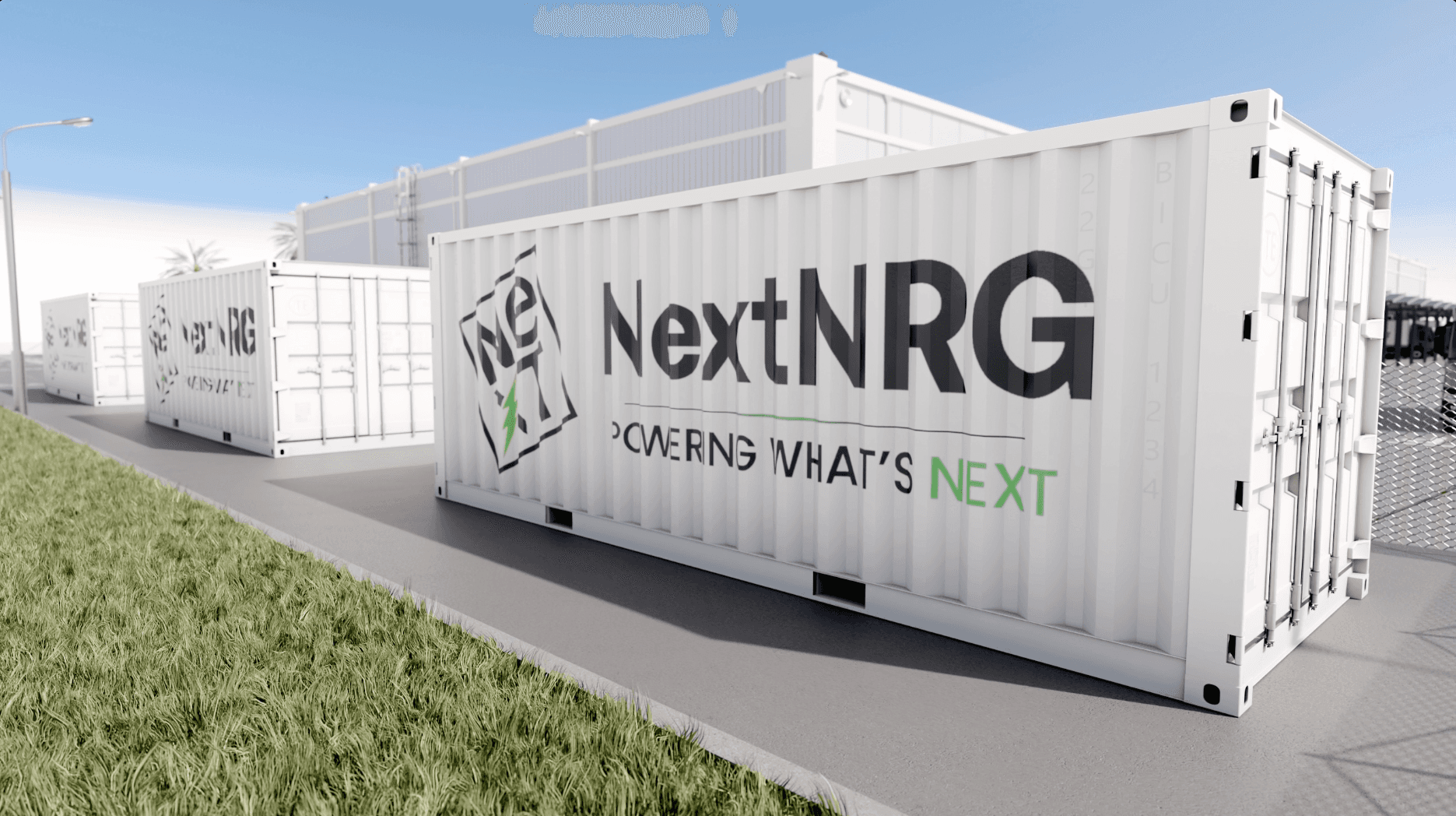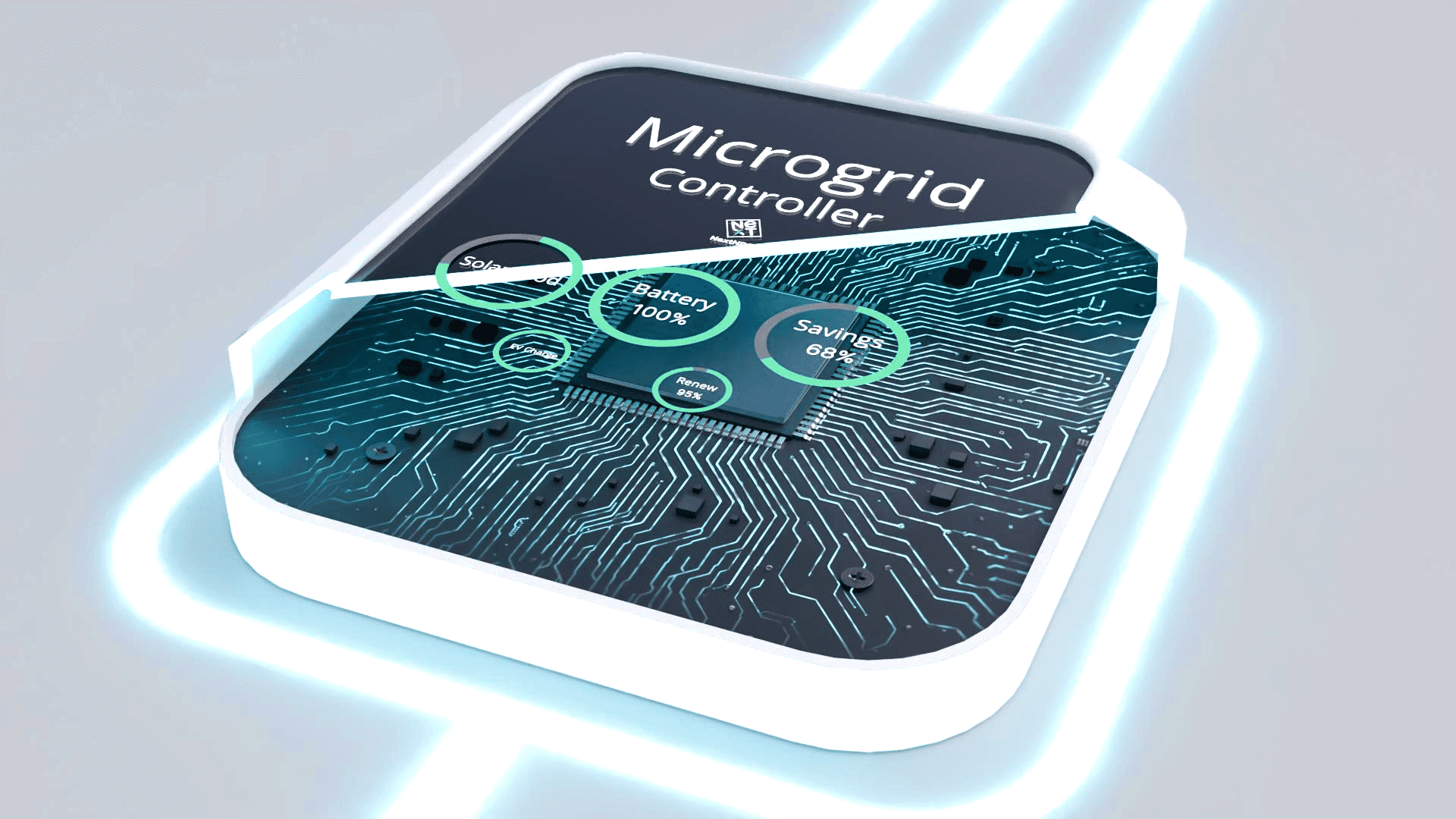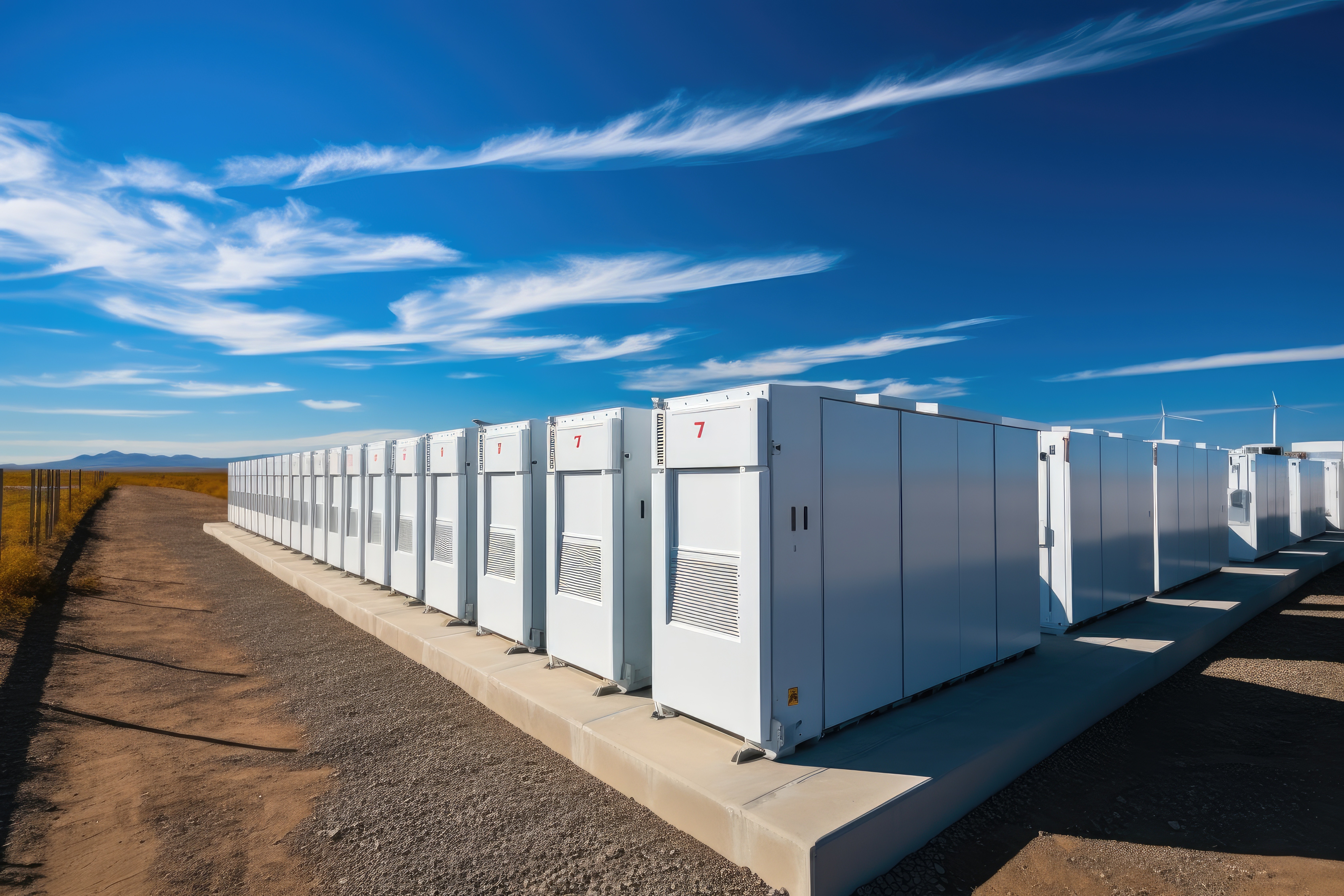
Mar 5, 2025
Artificial intelligence is transforming the landscape of energy management, particularly in grid optimization. By leveraging AI-driven solutions, you can enhance energy efficiency, streamline operations, and support a sustainable energy ecosystem. This approach allows for the integration of diverse power sources, ensuring that the energy supply is reliable and secure.
Next NRG stands at the forefront of these advancements with its proprietary Smart Microgrid technology. This innovative solution optimizes grid efficiency and resilience, integrating various energy sources to maintain consistent energy delivery. Moreover, their commitment to wireless EV charging enhances the management of electric fleets, ensuring peak performance while minimizing carbon footprints.
As AI continues to evolve, its impact on power management becomes increasingly profound. You’ll discover how Next NRG harnesses machine learning algorithms for precise predictive analytics, dramatically improving the profitability and efficiency of renewable energy systems. This is the future of energy—a commitment to forging a greener, cleaner tomorrow through technological excellence.
Understanding AI in Power Management
In the context of power management, AI plays a crucial role in optimizing grid operations and enhancing efficiency. By leveraging advanced algorithms and data analytics, AI technologies foster improved resource management and energy distribution.
Fundamentals of AI-Driven Optimization
AI-driven optimization focuses on harnessing algorithms to enhance grid efficiency. This involves techniques like predictive analytics, which utilize historical data to forecast power demand and supply patterns. Tools such as reinforcement learning enable systems to learn and adapt based on real-time inputs, improving decision-making processes without human intervention.
Supervised learning helps in the identification of anomalies in grid operations, contributing to early fault detection, while unsupervised learning reveals patterns in energy consumption that inform future strategies. Collectively, these methods contribute to a robust framework that facilitates dynamic adjustments in energy distribution.
AI Technologies in Energy Sector
The integration of AI technologies revolutionizes the energy sector, particularly in grid management scenarios. Machine learning algorithms analyze vast datasets, enabling real-time adjustments in energy generation and distribution. For example, Next NRG utilizes proprietary machine learning and deep learning methods to ensure energy management efficiency through the integration of various power sources.
These technologies enhance the resilience of energy supply, allowing utilities to optimize grid functionality seamlessly. The ability to forecast energy needs and adapt to changing conditions establishes a foundation for reliable service and reduced operational costs.
Relevance of Data Analysis and Machine Learning
Data analysis is at the heart of AI's effectiveness in power management. Big data technologies collect and process extensive amounts of performance data, essential for informed decision-making. The application of predictive analytics in energy forecasting is pivotal in minimizing energy wastage while maximizing output.
Next NRG exemplifies how advanced data analysis techniques enhance energy initiatives by providing accurate insights into power management trends. By employing machine learning algorithms, it achieves a high level of accuracy in forecasting, significantly improving the efficiency of renewable energy sources, such as solar power plants. This level of precision plays a vital role in optimizing grid performance and ensuring a secure energy supply.
Enhancing Grid Stability and Energy Supply
To optimize energy supply, advancements in grid stability integrate various innovations that enhance reliability and resilience. Utilizing AI-driven technologies can significantly improve how energy distribution is managed, ensuring a more sustainable energy future.
Grid Reliability and Resilience
Grid reliability is essential to maintaining consistent energy supply and minimizing outages. Smart grids equipped with AI analytics can forecast energy demand and manage power distribution effectively. By utilizing data from sensors and historical trends, systems can detect potential failures and automatically reroute power to maintain consistent supply.
Next NRG's Smart Microgrid technology offers an integrated solution for optimizing grid efficiency. This system enhances resilience by seamlessly managing diverse power sources and allowing for independent grid reconnections. Such capabilities ensure that any disruptions can be quickly addressed, providing a reliable energy supply even during unforeseen circumstances.
Renewable Energy Integration
The increase in renewable energy sources is critical for achieving a sustainable energy future. Integrating wind, solar, and other renewable resources into existing grids presents unique challenges, primarily due to their intermittent nature. AI algorithms analyze weather patterns and energy output, facilitating smoother integration and maximizing the utilization of available renewable energy.
Next NRG's focus on diverse power source integration allows for effective energy management across various renewable resources, boosting overall efficiency. This approach leads to enhanced energy distribution, optimizing grid performance and reducing reliance on fossil fuels.
Demand Response and Load Forecasting
Demand response programs play a key role in balancing energy supply and demand, particularly during peak hours. By employing load forecasting techniques, utilities can predict consumption patterns and adjust energy distribution accordingly. AI-driven analytics refine these forecasts, enabling precise adjustments to current operational strategies.
Furthermore, through effective demand response, grid operators can incentivize consumers to reduce or shift their energy use during critical periods. This strategy not only mitigates strain on the grid but also promotes sustainable energy practices. Continuous advancements in these areas will further enable efficient energy management and contribute to a more resilient energy infrastructure.
Operational Excellence and Cost Efficiency
AI-driven power management is crucial for enhancing operational efficiency and achieving significant cost savings. By optimizing energy usage and streamlining asset management, organizations can minimize waste and telegraph their bottom line effectively.
Improving Energy Efficiency and Reduction of Costs
Energy optimization plays a vital role in reducing operational costs. Through advanced analytics, AI systems can identify patterns in energy use and recommend adjustments to enhance efficiency. This leads to less energy waste and, significantly, lower bills.
For instance, integrating technologies like those from Next NRG enables smart homes to monitor and adjust energy consumption in real-time. With this technology, you can leverage insights to conserve energy effectively, optimizing your overall energy management strategy.
Implementing strategies such as demand-response programs allows organizations to align energy consumption with availability, resulting in additional savings. This proactive approach to energy conservation is essential for minimizing costs while ensuring reliable energy supply.
Predictive Maintenance and Asset Management
Predictive maintenance represents another cornerstone of operational excellence. By employing machine learning algorithms, you can anticipate equipment failures before they occur, thus reducing downtime. For example, Next NRG’s systems offer up to 95% accuracy in forecasting maintenance needs.
This precision translates into efficient asset management. With a clear understanding of when maintenance is required, you can allocate resources wisely and extend equipment life.
Additionally, integrating electric vehicles within your infrastructure can enhance operational efficiency. An optimized fleet benefits from predictive maintenance protocols, ensuring that every vehicle stays in top condition while maximizing availability for essential operations.
In summary, employing robust energy management solutions not only enhances grid efficiency and resilience but also greatly reduces operational costs.
Challenges and Ethical Considerations
As you explore AI-driven solutions for grid optimization, consider the complexities of data privacy and security, as well as the importance of adhering to ethical AI practices. These factors are crucial for ensuring trustworthy and sustainable energy management systems.
Data Privacy and Security in AI Implementation
Incorporating AI into power management necessitates robust data privacy and security measures. You must guard against unauthorized access and potential breaches, as AI systems often process sensitive data. Implementing strong encryption protocols and strict access controls is essential.
Furthermore, continuous monitoring of data flow helps in identifying anomalies in real-time. Regular audits enhance accountability, ensuring compliance with data protection regulations. The effective integration of diverse power sources by Next NRG exemplifies how data can be utilized securely while optimizing grid efficiency.
Through reliable sensor data analytics, Next NRG supports independent grid reconnections. This enhances security and minimizes vulnerabilities inherent in distributed energy sources, providing a model for effective energy management.
Ethical AI Practices and Regulatory Compliance
Adopting ethical AI practices is vital in maintaining public trust. You need to create algorithms that prioritize fairness, transparency, and accountability. Developing guidelines that clarify decision-making processes in AI applications mitigates risks associated with bias or unintended consequences.
Moreover, maintaining regulatory compliance ensures that your AI systems align with environmental sustainability goals. You should regularly review policies to adapt to new regulations and guidelines. By fostering a culture of ethical AI within your organization, you enhance the integrity of your energy initiatives.
Next NRG showcases a commitment to these practices by leveraging proprietary technology that unites critical infrastructure sectors. This approach not only optimizes grid efficiency but also adheres to necessary regulatory frameworks, establishing a model for ethical AI integration in energy management.
The Future of AI-Driven Grid Management
The integration of AI in grid management signals transformative advancements in how energy systems operate. Enhanced optimization and predictive capabilities will redefine energy infrastructure, promoting sustainability while addressing the challenges of decentralized energy systems.
Anticipating Technological Advancements
Emerging technologies in AI-driven grid management will streamline operations significantly. Expect advanced machine learning algorithms that predict energy demand with up to 95% accuracy, crucial for integrating distributed generation sources like solar and wind energy.
Next NRG is at the forefront, using proprietary Smart Microgrid technology to unify diverse power sources. This integration optimizes grid efficiency and enhances resilience, ensuring a reliable energy supply in fluctuating conditions. Continued digital transformation will support decentralized power generation, shifting the grid toward a more adaptive model.
Impact on Sustainable Power Generation
AI's role in optimizing power generation is pivotal for sustainability. Enhanced forecasting tools will allow operators to better manage renewable sources, leading to reduced waste and improved resource utilization. By implementing AI-driven optimization, energy companies can maximize output from solar and wind resources.
Furthermore, tools for real-time monitoring and predictive maintenance can prevent outages and system failures, fostering a more reliable energy ecosystem. This focus encourages clean energy initiatives, aligning with global demands for greener solutions.
Evolution of Energy Infrastructure
The future of energy infrastructure will increasingly embrace AI-driven technologies to fortify resilience and efficiency. Smart grid systems will employ real-time data analytics to monitor multiple energy sources, enabling faster and more informed decision-making.
Next NRG's approach exemplifies this evolution through integrated energy management, ensuring that grid operators seamlessly manage diverse power supplies. This innovation not only boosts optimization but also allows quick reconnections in independent grid scenarios, contributing to a more secure energy landscape.
As these advancements unfold, expect energy systems to transition toward models that prioritize sustainability and efficiency, founded on AI and machine learning capabilities.
Frequently Asked Questions
Artificial intelligence brings significant advancements to power management, particularly in enhancing energy efficiency, improving load forecasting, and ensuring grid stability. The following questions address key aspects of how AI contributes to these vital areas.
How does AI enhance energy efficiency in power grid management?
AI optimizes energy usage by analyzing real-time data on consumption patterns and supply conditions. By leveraging machine learning algorithms, AI can predict demand peaks and adjust energy distribution accordingly, minimizing waste and maximizing resource utilization.
What are the key advantages of incorporating AI in utility load forecasting?
Incorporating AI into load forecasting provides a higher accuracy level compared to traditional methods. AI algorithms can process vast datasets, including historical usage and weather patterns, allowing utilities to anticipate demand with up to 95% accuracy. This precision enhances planning efficiency and reduces operational costs for utilities.
How does AI contribute to the reliability and stability of the electric grid?
AI enhances grid reliability through predictive maintenance and anomaly detection. By continuously monitoring grid performance, AI can identify potential faults before they lead to failures, allowing for timely interventions. This proactive approach ensures consistent power delivery and minimizes outages.
What role does AI play in renewable energy integration into the power grid?
AI facilitates the integration of renewable energy sources by managing their variable nature. Through smart grid management and predictive analytics, AI aligns energy supply with demand, ensuring that renewable sources are effectively harnessed alongside traditional power generation, thus improving system resilience.
In what ways can AI assist in reducing operational costs for electricity providers?
AI streamlines operations by automating routine tasks and improving decision-making processes. By optimizing resource allocation and enhancing predictive maintenance strategies, AI reduces the costs associated with unplanned outages and inefficient resource use, leading to significant savings for electricity providers.
How do AI algorithms improve demand response strategies in grid operations?
AI algorithms enable more effective demand response by analyzing consumption trends and consumer behavior. This allows grid operators to implement dynamic pricing and incentive programs, encouraging users to adjust their energy usage during peak times, thus alleviating stress on the grid.
Next NRG exemplifies how advanced AI/ML technology can optimize energy management. Their solutions in Smart Microgrids and Wireless EV Charging focus on integrating diverse power sources, significantly enhancing grid efficiency and resilience.
Don’t Miss Out
Join our newsletter to get latest insights for your brand growth!





